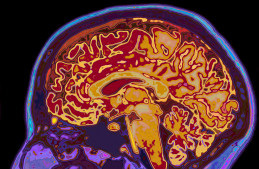- Study type
- Benefit
- Location
-
-
2 milesAny
- Completion time
-
20 minAny
- Keywords & Disciplines
-

The 12 Hour Journey: A wellbeing study for people living with a stoma
University College London, GB
We’re running a UCL research study with Colostomy UK exploring how time outdoors can support wellbeing for people living with a stoma. The 12 Hour Journey isn’t about distance — you choose 4, 6, or 12 hours outdoors, unplugged and at your own pace. By taking part, you’ll help us understand how...
- 1 Day(s) to complete
- Prize draw to win one of 4 £50 retail vouchers
- Experiment
- Online
22 September 2025 Requirements- Adults aged 18 and over
- Living with a stoma (colostomy, ileostomy, or urostomy)
- Living in the UK
- Able to take part in a solo outdoor walk or time outside for 4, 6, or 12 hours (your choice)
- No need to be fit or an experienced walker — this is about stepping outside your routine, not a race.
-

Understanding the symptoms of body dysmorphia and muscle dysmorphia.
University College London, GB
This online study aims to understand more about body dysmorphic disorder and muscle dysmorphia. It is hoped that the results of this study will help improve our understanding of how to best support people with body dysmorphic disorder and muscle dysmorphia.
We are exploring:
- The symptoms...- 15 Min(s) to complete
- Prize draw: Enter to win one of ten £25 vouchers.
- Online Questionnaire
- Online
17 September 2025 Requirements- - Individuals who self-identify as having body dysmorphia and/ or muscle dysmorphia
- - Individuals who are aged 18+.
- - Individuals who are fluent in English
-

How Electrical Stimulation Reshapes Our Ability to Juggle Multiple Tasks
University College London, GB
This experiment involves eye-tracking and transcranial direct current stimulation (tDCS), a safe, non-invasive brain stimulation technique. The experiment includes two parts: the first session lasts for 2 hours, and the second session (one week after the first session) lasts for 1 hour. You will...
- 3 Hour(s) to complete
- £35
- Experiment
- 2 Wakefield St, London WC1N 1PF, UK
02 May 2025 Requirements- Eligibility criteria (read carefully):
- 1. Native British English speakers, aged 18-35
- 2. Right-handed
- 3. Less than 3 years of musical training
- 4. No speech or hearing deficits, no neurological or psychiatric disorders (e.g., dyslexia)
- 5. No severe dry eyes
- 6. No extensive experience with degraded speech
- To ensure you are tDCS safe, you should NOT participate if you:
- • Have a history of epilepsy or seizures
- • Have any implanted metal or electronic devices (e.g., pacemakers)
- • Have a history of neurological or psychiatric disorders
- • Are pregnant
-

The Impact of CBT on Shock-Potentiated Neural Circuitry
University College London, GB
We are looking for participants with persistent anxiety to take part in our research study on the effects of psychological therapy on learning and emotional processing. It is hoped that this research will contribute to an improved understanding of anxiety and its treatments. Participants will...
- 7 Hour(s) to complete
- £75 for full participation.
- Experiment
- Queen Square, London WC1N 3AH, UK
07 October 2024 Requirements- We are looking for people who have been experiencing persistent anxiety and/or low mood.
- All participants must be between 18 and 75 years old.
- Participants will need to be safe to go into the MRI scanner, meaning they must have no metal in their body that cannot be removed (piercings, implants, medical devices, etc).
- We unfortunately cannot accept participants who have taken antidepressant medication in the past six months.
- We also cannot accept participants who are currently receiving CBT treatment, or have received such treatment within the past 3 months.
- However, we are able to recruit participants who are on the waiting list for CBT treatment through the NHS, but please let us know.
- It is also preferable for participants to live in London.
-

How women who have experienced Eating Disorders discuss Instagram and food
Metanoia Institute, UK
My research aims to explore how women who have experienced an Eating Disorder discuss Instagram and its connection to their relationship with food.
Research has established that higher Instagram use is associated with declines in mental and physical health, higher levels of ‘drive for...- 60 Min(s) to complete
- Sincere Gratitude
- Interview
- London, UK
23 February 2024 Requirements- Above the age of 18
- Identifies as female
- Living in the UK
- Fluent in English language
- An Instagram account which was accessed every day at the time of having an Eating Disorder
- Ongoing or previous contact with a service that offers psychological support
- Recovered from an Eating Disorder
- Able to give informed consent
-

What is your strongest area of intelligence? (Part 2)
University of Westminster, GB
UPDATE: This stage of the research is now complete. Enquiries are being accepted for the next stage of the research involving an online IQ test and questionnaire on life outcomes and opportunity.
Researching patterns of response, i.e. relative strengths and weaknesses, on different types of...- 120 Min(s) to complete
- £10 online shopping voucher
- Psychometric testing
- 115 New Cavendish St, London W1W 6UW, UK
13 September 2022 Requirements- Age 18-60
- No traumatic brain injury, stroke, or epilepsy
- English fluency
- London location (or within reasonable travel distance) for in-person testing
-

Social experiences and eating behaviours in adolescents
King's College London, GB
This study investigates the way that young people view others and experience social interactions in relation to mental health and eating behaviours. Participants will be asked to complete some questionnaires and computerised tasks which will take a maximum of 2 hours ad will receive £15 for...
- 2 Hour(s) to complete
- £15 Amazon Voucher or Cheque
- Experiment
- 103 Denmark Hill, Camberwell, London SE5, UK
30 March 2018 Requirements- To take part in this study you must be:
- Aged 13-17
- Fluent in English
- No current or previous mental health diagnosis
- OR currently diagnosed with an eating disorder, with no severe psychiatric comorbidity (e.g. psychosis)
- No visual impairment that is not corrected by glasses/contact lenses
- No neurological impairment (e.g. epilepsy)
-

Who dunnit?
Goldsmiths University of London, GB
You are invited to take part in a student study that examines the accuracy of people’s recall and identification decisions.
- 7 Min(s) to complete
- Sincere Gratitude
- Experiment
- Online
07 March 2018 Requirements- I am at least 18 years of age.
- I live in the UK.
-

The relationship between religiosity and weight perception
Goldsmiths University of London, GB
This study aims to investigate the relationship between religion and an individuals perception of their own weight. It does so through means of a short 2-5 minute questionnaire.
- 3 Min(s) to complete
- Sincere Gratitude
- Online Questionnaire
- Online
20 February 2018 Requirements- There are no specific requirements, just a willing volunteer. You will be asked to provide your height and weight.
-

Biomarkers in Neurodevelopmental Disorders (BIND)
King's College London, GB
This study is exploring the potential of using an eye-tracking test in the diagnostic assessments of attention-deficit/hyperactivity disorder (ADHD) and autism spectrum disorder (ASD), hopefully improving the diagnosis of these conditions in the future. The whole study is non-invasive and...
- 2.5 Hour(s) to complete
- £20 shopping voucher and up to £30 of travel costs reimbursed.
- Experiment
- Institute of Psychiatry Main Building, Camberwell, London SE5 8AF, UK
06 December 2017 Requirements- Age 35+
- Males and Females
- No mental health problems ('healthy' participants)
-

Why Tinder? Motivations and effects
Goldsmiths University of London, GB
Dear Everyone!
This would be a fun project about why people use Tinder and what are the effects of it.
I would need 40 students who actively use and 40 students who do not use Tinder. In this moment I would need people who use it especially but everyone is welcome to join. In the first part,...- 60 Min(s) to complete
- Sincere Gratitude
- Experiment and Online Questionnaire
- Goldsmiths College, 80 Lewisham Way, London SE14 6PB, Egyesült Királyság
26 March 2016 Requirements- Males and Females
- Age: 18-35
- People who use Tinder (ESPECIALLY) and people who do not use it
-

Does Personality Influence Eating Styles, Food Choices and Attitudes
Goldsmiths University of London, GB
This study investigates the possible relationship between personality types and diet. More specifically, it looks at how different personality types show differences in dietary preferences, food choices and attitudes towards alternative diets such as vegetarianism and veganism.
- 15 Min(s) to complete
- Sincere Gratitude
- Online Questionnaire
- Online
01 March 2016 Requirements- No specific requirements!
